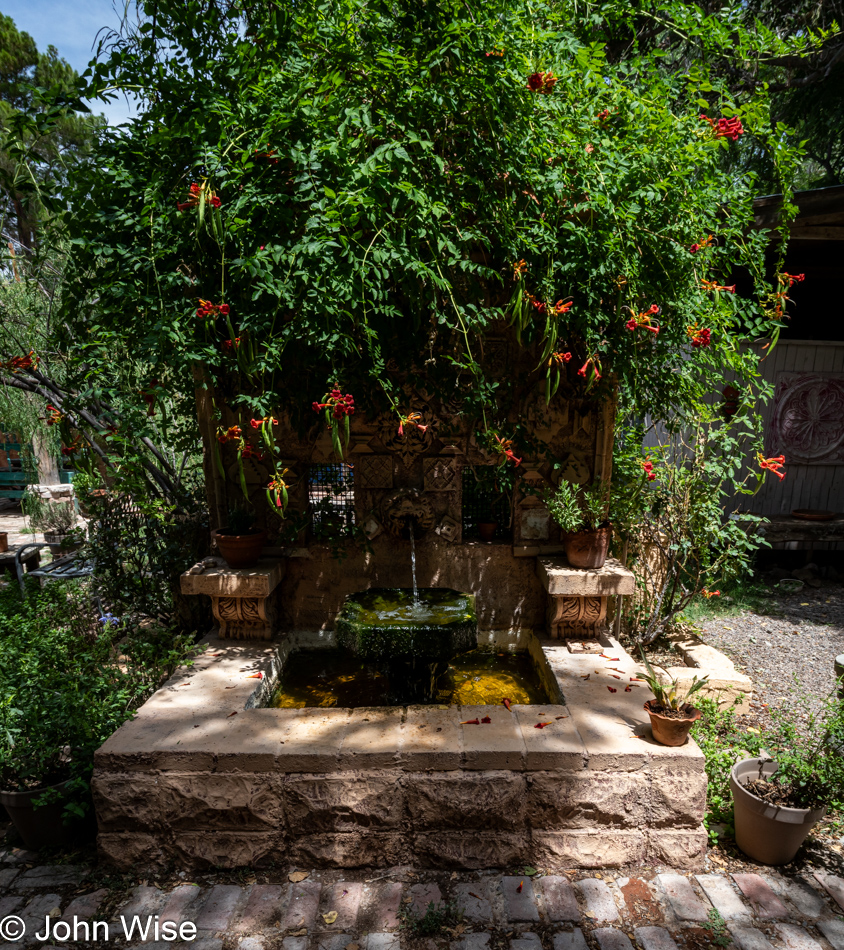
Our 16th-century mystic guide, Don Carlos of the Unseen, emerges from the ethers between here and there. Swooping in on the wind, he nudges us to seek out what is not immediately apparent and easily grasped through casual observation. His wisdom is sculpted into the Secret Gardens of Duncan, which we were first made aware of some years ago; the exact date and location are of no import.
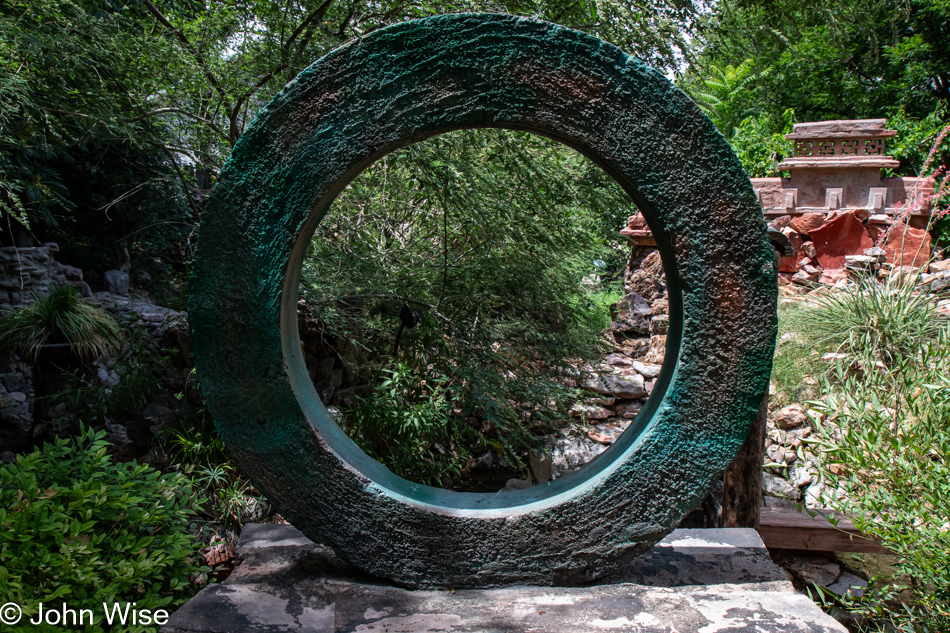
Roads nor maps can bring you to this sacred space; karma and at least some knowledge gleaned from the pages of ancient volumes known to the literary-minded will open a path. The geometry of the mind framed by experiences delivers the traveler to destinations as though transported through portals – such is the luxury of the learned. Understand that it is not smarts per se that reveal these opportunities nature has crafted for those exploring the landscape of curiosity; it is a trail kept open for hearty souls looking to wander the path of wisdom and have an inkling of knowing what they don’t know.
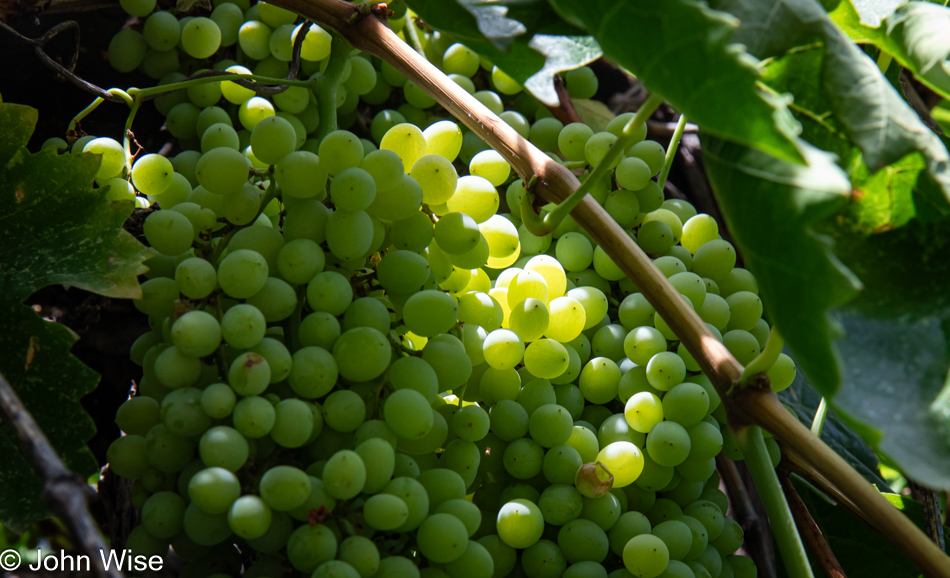
The abundance of mindful nourishment is all around us, and yet many are in an existence where nothing is found, their intellect withering on the vine. While many non-threatening insects such as butterflies, ants, and beetles play a part, it is the bees, wasps, and hornets that get the majority of pollination work done, and with them, there is an inherent danger due to their ability to sting. The symbiotic relationship between the beauty of a flower, the potential pain of the stinger, and the potential of nourishment to be provided creates a balance in nature that benefits many things, us included. Our mind is the flower, books are the bees and butterflies, and knowledge is the fruit.
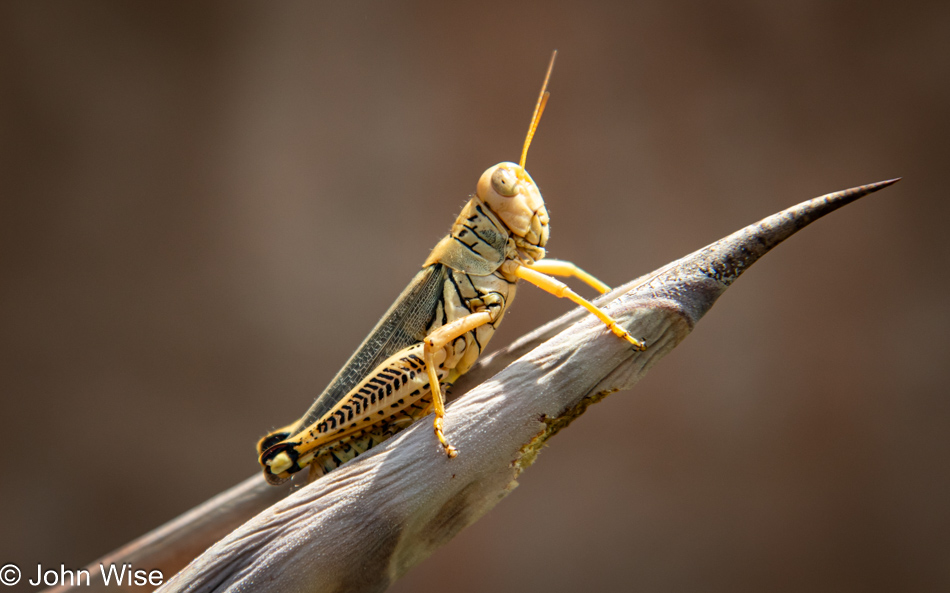
This grasshopper is mass media, the internet, and the face of conspiracy theories. If there are but a few, their threat to crops is minimal, but when swarms of them descend upon the garden, there is a risk that they will leave nothing in their wake. Love, sharing, knowledge, and learning are the insecticides against the ravaging horde of pests that can destroy one’s mind. The key to a healthy garden/mind is found in balance.
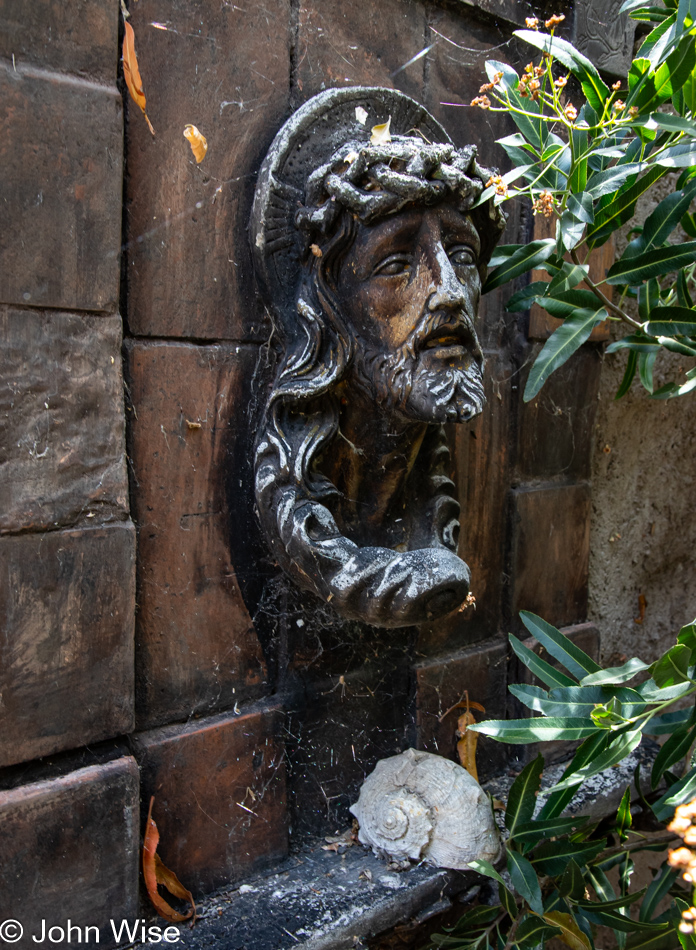
Don’t look for dogma in the Secret Garden of Duncan, though you will find ample evidence of the Judeo-Christian tradition scattered about. They are not here as reminders of doctrine but are powerful icons of moments threaded through Western history, with their symbolic nature acting as hints of points in the timeline of where our ancestors strode. Zen is also present, inviting visitors to leave reasoning behind and simply be present for the spiritual, where one might find hints of satori, a.k.a. enlightenment experiences.
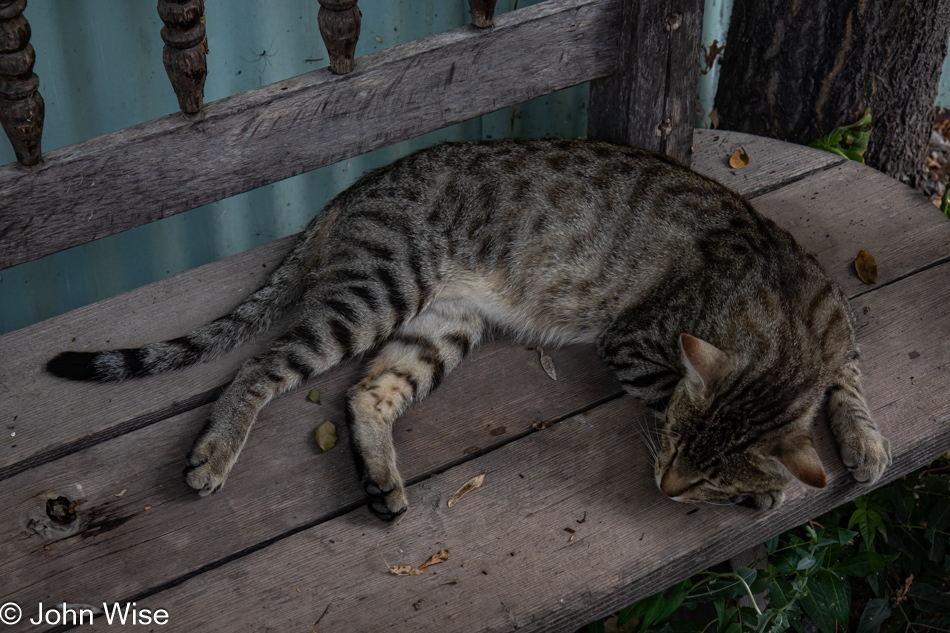
The garden is a place of meditation; just ask the cats. They might acknowledge your presence but are just as likely to maintain focus while ignoring you. Did you really want to talk to one anyway, or were you hoping to satisfy your need to snuggle a kitty? Take a moment and consider the cat: they are independent problem-solvers with advanced spatial awareness, object manipulation, and observational learning skills that might align to a greater degree with thinkers, artists, and creators, whereas dogs are more social with skills of obedience often suited to the sporty, gregarious types of people.
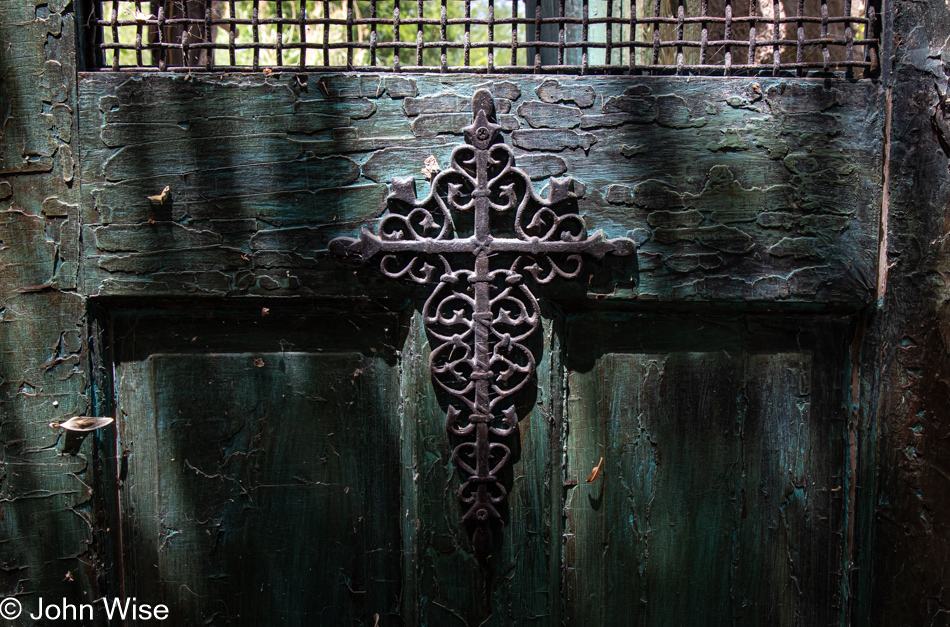
There are doors you may pass through, obstacles you must go around, and places in the garden you will not know how to navigate; they are the metaphors of your life. When Don Carlos brought this secret place into existence so many centuries ago, it was not his design to offer instructions or a map of what was to be obtained, gathered, or understood by those who might find their way in. We are obliged to carry the burden of our humanity with grace into uncertain futures where wisdom might be the reward, but should we abdicate our most human of qualities, that being the curiosity to learn and love, we could also find a future of damnation where the burden is eternal ignorance.
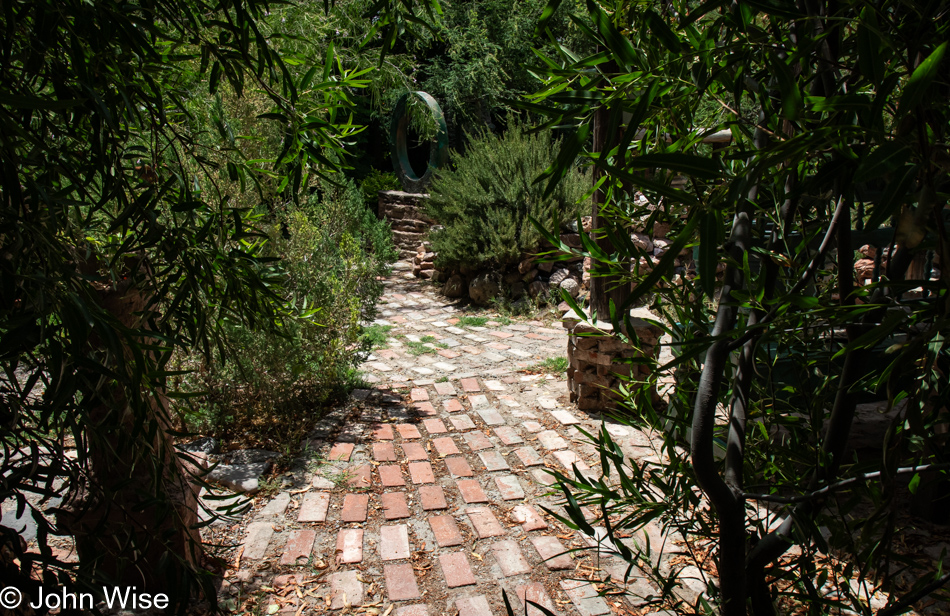
The paths one takes through doors and portals are relatively easy choices when they are confronted outside the terror of groupthink and enforced conformity, so few seem to have the wherewithal to walk a lonely path of individuality. It’s ironic that the deities worshipped by the masses are exactly those who had to walk alone, and yet today, many are most comfortable when embraced by a horde who are also uncertain about finding themselves and unwilling to challenge the habits that keep them in a kind of darkness while also threatening those who are going their own way.
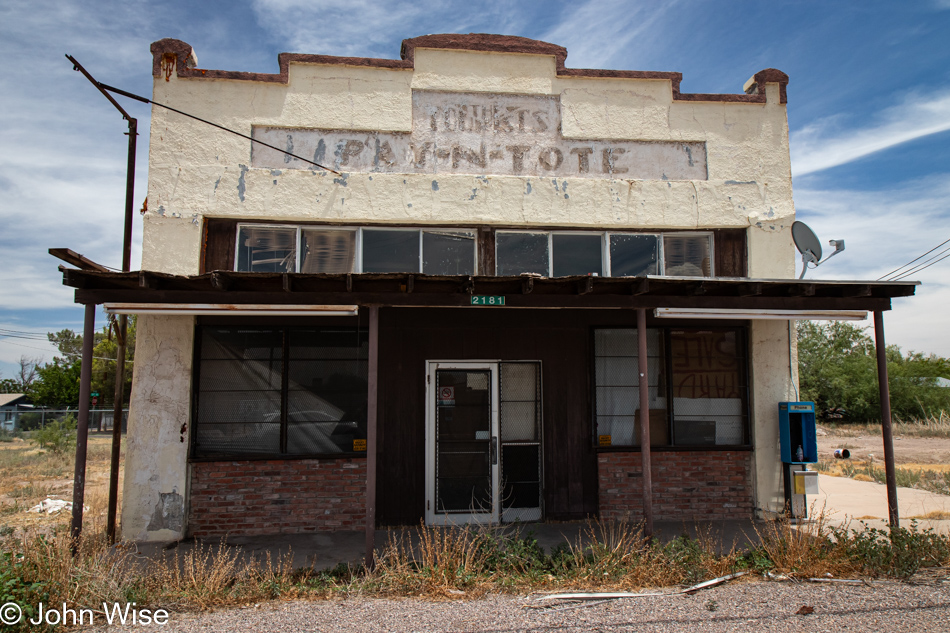
Out of the garden and into the decay of that which is neglected, which in our age is most everything. This single building is but one small representation of turning away from something that once was important yet today is becoming a blight on the landscape. At one time, the resources and energy we used for commerce or to power our car or home were important, and now, today, its pollution and decaying carcasses poisoning our environment is an issue for others to come clean away the debris. Isn’t this also how people treat their own religions? We use the various books of law where theological doctrine is prescribed and throw out the inconvenience of adherence due to the burden of living in balance incompatible with ego, greed, and selfish consumption. We are but naked liars, begging/praying for forgiveness because the giant black holes in our souls scream at our stupidity that we are being less than what we are capable of.
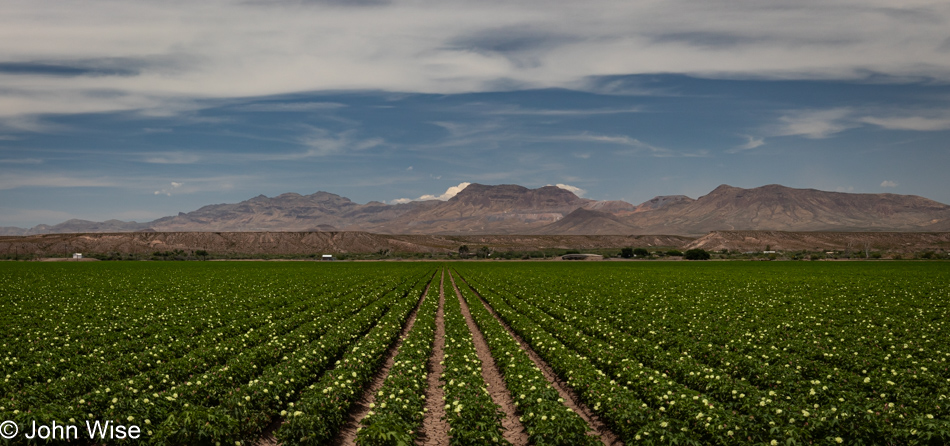
Witnessing the better parts of what people offer as a collective absolves our individual responsibilities as we take credit for what the whole accomplishes. This shallowness is nothing more than a lie, a deception, and a cheat that we wish no one to hold us accountable for. It must be okay because everyone else is doing it. Plus, I’ll just ask my big deity in the sky to absolve me for these sins, and I’ll be good to enter the kingdom of heaven where somehow I will turn over a new leaf and start to honor what I wasn’t able to while I was in an organic form. This, to me, sounds like a recipe for admission to hell for those who are deceiving themselves that truth, love, and learning at the individual level is a requirement for a pious life. As an atheist, I find my piety in observing respect for all of this: the air, the plants, the mountains, other people, animals, everything. We should be aghast that in my lifetime, since 1963, there have been nearly 2 million gun deaths of fellow Americans, excluding deaths in war/combat. In all wars since the Revolutionary War 250 years ago, 667,776 Americans have died in combat, yet we claim to be a Christian people. We are a death cult afraid of living a righteous and accountable life.
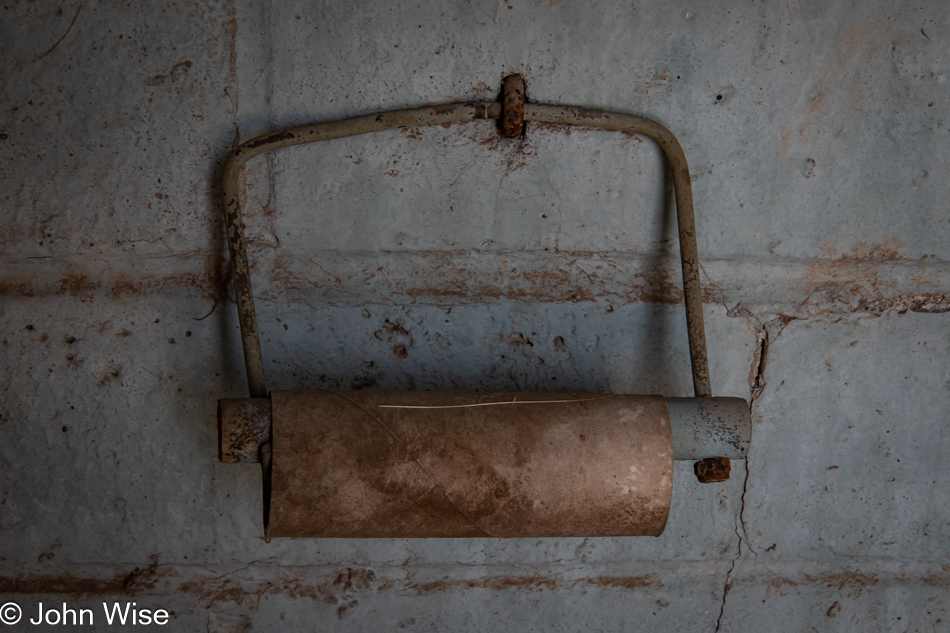
There are no more flimsy toilet paper excuses left on the roll, America. You kill and poison in the name of God as the shit of your actions pile up, but you don’t care about real things because you don’t have the intellectual capacity to move your minds out of the toilet of stupidity. You’ll sit on the commode of inaction as the house burns down, all the while offering thoughts and prayers that a mystical entity should offer you salvation, even as you don’t really have anything to offer that might benefit the heaven you insist you love.
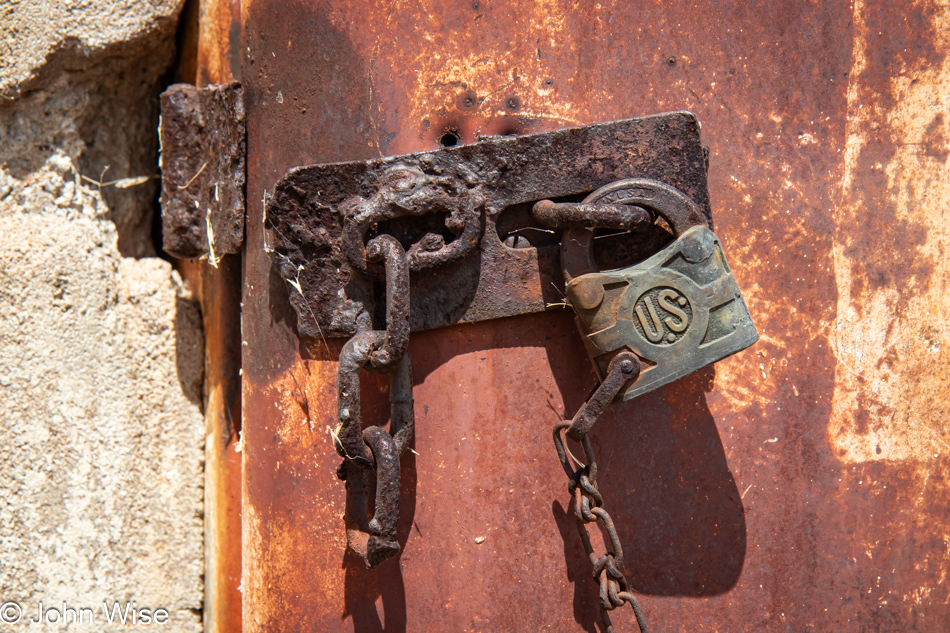
Chained, welded, and locked to rusty old ideas that seem good enough while simultaneously not really performing any function at all because who wants to criticize that it is the individual that is broken and likely not the myriad of issues the angry among us want to blame? Step back and look at the big picture. We have it all, including some warts, but the good fortune of opportunity exists large in the United States. If it wasn’t for the constant refrain of trying to lay fault on others instead of accepting, it is our own failure to have equipped ourselves with the requisite skills that would have allowed our happiness.
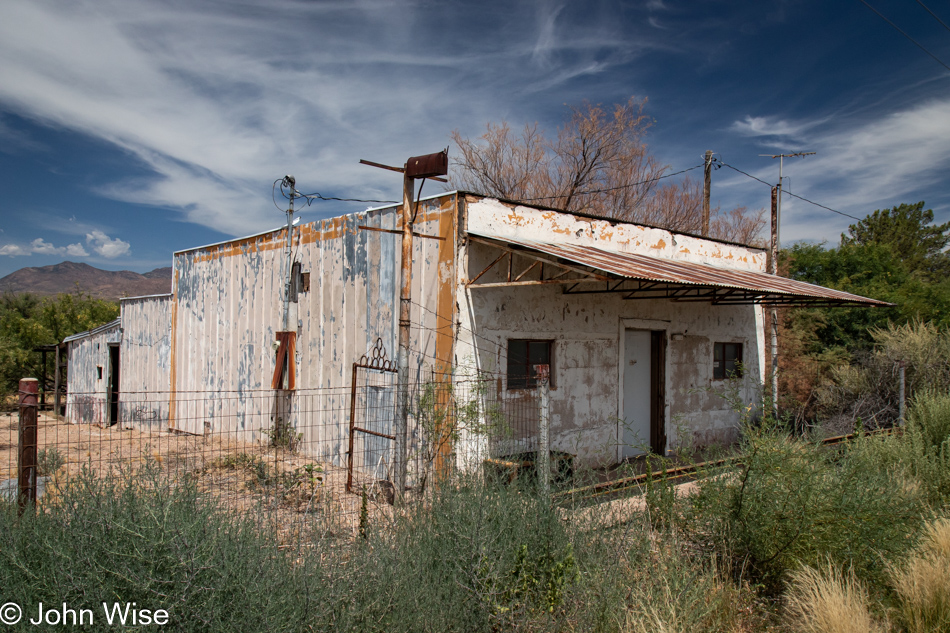
Hey John, are you trying to have it both ways? You say absolutely disparaging things about the violence and stupidity you claim to perceive, and then you turn around and extoll the virtues that lead to incredible opportunity? Yep, that sounds about right, but like this old decrepit building, things in decay that should be torn down should not be described as having hidden value. You can’t sugarcoat a turd and call it a bonbon. For our democracy to function, it requires all of our efforts, not just the waving of a magic wand by a charismatic leader or the tossing of an unpopular leader onto the gallows. These types of behaviors and thoughts are the machinations of spoiled children acting out and creating a spectacle that other stupid people enjoy watching because we’ve been trained to find enchantment in the trainwreck.
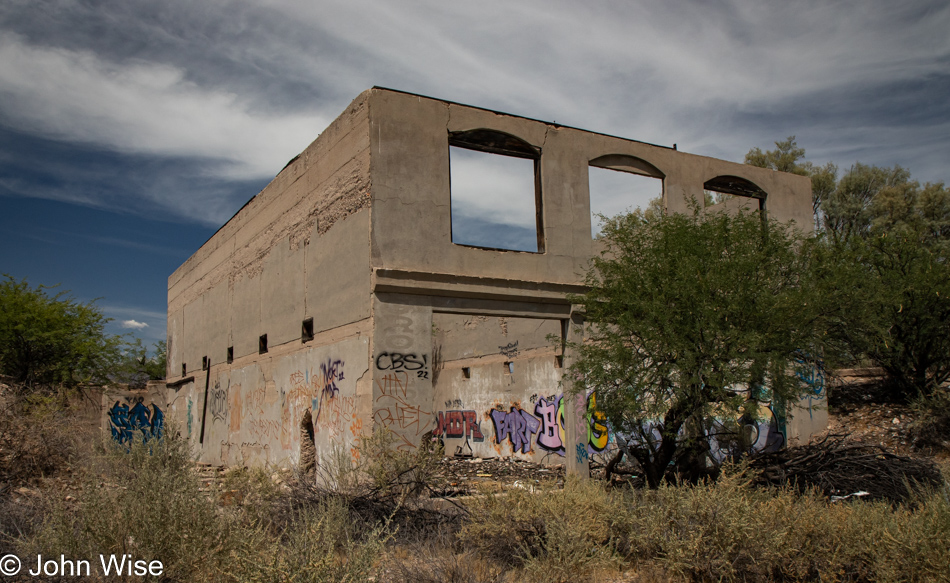
The previous images were from a town that existed at one time called Emery, Arizona. Apparently, it merged into Fort Thomas further east, and this old store is in Geronimo. If you look at the lower left corner of this building, you can make out the stenciled image of “Grocery.” By now, I suppose I’ve primed the reader for more lament and snark, but even I have my limits, so I’ll stop here. Should you desire more of my rant, you’ll have to wait for the next missive in which the observation of something reaches deep into my ass crack and chaps my brain cells.
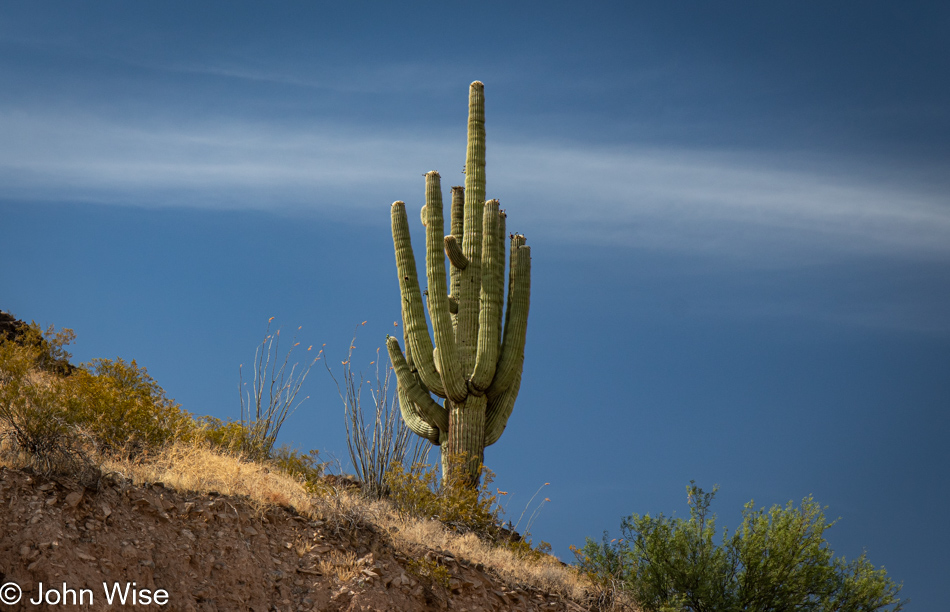
It turns out that we are near the eastern edge of the Chihuahuan desert, which also means we are near the border where saguaro cacti grow. I’m pointing this out because Caroline noted that she thought this was the first saguaro we’ve seen on our drive west back home, so I checked their growing area and found out that they grow in the Sonoran and Chihuahua deserts and are sensitive to elevation and humidity hence why Arizona is the epicenter of this majestic cactus.
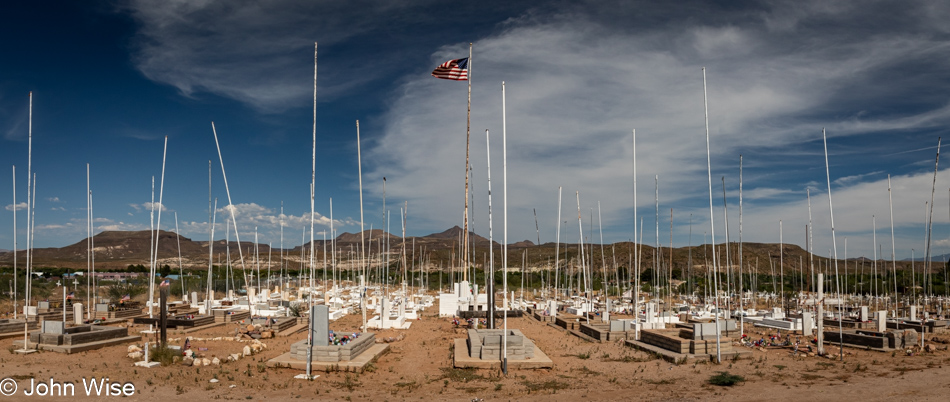
We spotted that capital specimen of saguaro while driving toward the Apache town of San Carlos on a detour to visit a place we’d never been to before. Moving through the outskirts and town proper in this corner of the reservation, we really didn’t want to give more time to our already long day, so with this photo of the San Carlos Cemetary and specifically the veterans section, we’ll turn our focus to going home. But first, some explanation of the photo. On Veterans Day, each of these tall poles will carry a U.S. flag honoring the members of the Apache tribe who served their country. We only looked at a small fraction of the grave sites, but we saw the names of soldiers who fought in World War II, Korea, and the Vietnam War, as well as more recent conflicts.
In honor of one of those men, I took special note of Marine Corps PFC Snyder Burdette, who apparently died fighting on November 13, 1942, and posthumously was awarded a Purple Heart for his sacrifice.